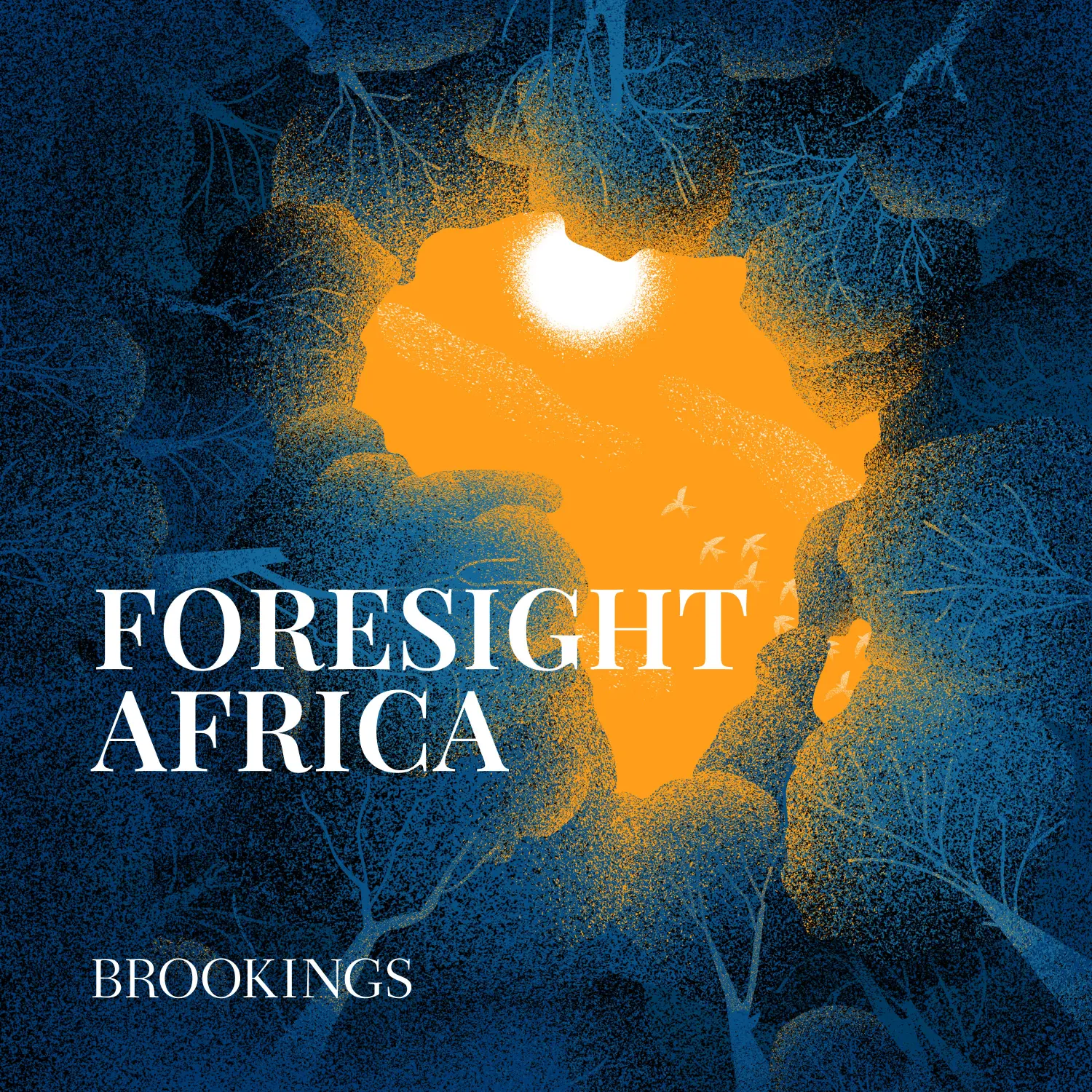This audio recording is part of the UNGA 2025 special episode of the Foresight Africa podcast. Listen to the second episode of the three-part series, which includes interviews with three other speakers on site at the event.
Landry Signé, senior fellow in the Global Economy and Development program and the Africa Growth Initiative at the Brookings Institution and host of the Foresight Africa Podcast, attended the U.N. General Assembly in September to speak with some of organization’s top leaders and international partners on the U.N.’s successes and future in a changing world.
In this interview, Landry Signé speaks with Angolan Minister of Industry and Commerce, Rui Miguens de Oliveira. Minister de Oliveira has served as Deputy Governor of Angola’s National Bank and has a long career in the Angolan finance industry, including as the Executive Vice President of Banco Keve and as founder of Banco Valor.
Transcript
LANDRY SIGNÉ: Before we begin, could you please state your full name and title for the recording please?
RUI MIGUENS: My name is Rui Miguens de Oliveira, usually known as Rui Miguens and my position on the Angolan government is as Minister of Industry and Commerce.
LANDRY SIGNÉ: I am delighted to have you join me during the 80th UNGA. Excellency, what are Angola’s top priorities for the 80th UNGA, and how do you see these shaping the global agenda moving forward?
RUI MIGUENS: Our top priority as a government is our continent, because we come here in a double condition. Our president happens to be also the president of African Union Exec right now. So we came here with this double condition, which actually is also one condition if you will.
Because what is important for us is to stress that Africa is a continent of opportunities.
Africa is engaged and wants to deep its engagement with the rest of the world. In order to achieve our development goals, that’s our priority. We need to get the attention for the rest of international community in order for it to understand that Africa has the potential, Africa has the will, and Africa has a clear plan and strategy for its own development.
Of course, we rely on our efforts and our strengths. But also we’d like to attract other stakeholders on the international community. There is also on the political side, the interest from the continent, and my country as well to bring attention for the need for more voice and representation for African continent.
LANDRY SIGNÉ: Absolutely.
RUI MIGUENS: We account for. 1.2 billion people right now. So it’s a huge part of humanity and our representation is not as it should be in terms of the representation on the Security Council. In terms of representation of the various organizations in the U.N. family.
So I think that these two, they are aimed at the sole question that Africa needs to develop. And for that needs the cooperation of the international community, but also for that purpose Africa needs to be better represented. Needs to be here on the international arena.
LANDRY SIGNÉ: Amazing, Excellency. What makes UNGA a uniquely valuable forum for advancing these priorities and strengthening multilateral engagement?
RUI MIGUENS: This is a very important place. When you come here we are actually within our borders as countries, individual countries, but here we have the opportunity to be among equals.
So the communication is more fluid and also it’s a communication that is set in the parameters where everyone needs to understand, needs to hear the counterparties. So this, from my side, it’s a very important place where actually all the international players, all the international community can openly speak about their problems and how can we solve together as humanity, all these challenges that we may, we’re facing.
LANDRY SIGNÉ: I love this Excellency. In what ways have today’s global challenges reshaped Angola’s approach to multilateralism or to global governance?
RUI MIGUENS: Angola wants also that the global governance should take into account the interest of every and each country in the planet. It should be a governance that allows the bigger countries, the medium countries, the smaller countries, the micro countries, all of these countries should be taken into account whether we are working on trade, we are working on industrialization, we are working on healthcare. That is a very important sense that we need to have, that everyone belongs to this unique planet. And no matter what the size of the country, no matter the size of the population, we should be take into account each of everyone’s interests in order for us to live in peace and to work for development.
LANDRY SIGNÉ: Fabulous. The last question, excellency. Looking ahead, what opportunities and recommendation do you see for organizations and countries also like Angola, but also the United Nations to strengthen global governance and drive more effective international cooperation?
RUI MIGUENS: There’s something that we have been speaking a lot in the last few years, which is the reform of Security Council.
I think that it’s a very good first step, but of course it’s not the only one. It should not be the only one step. I think we need more engagement of countries we need to find a common agenda for international relations. A common agenda on peace and development, a common agenda on protecting environment.
If you can structure that common agenda, we be able to produce the results that everyone is looking for. And the only way we do that is in this multilateral system that is the U.N.
LANDRY SIGNÉ: Amazing way to conclude Excellency.
-
Acknowledgements and disclosures
The Foresight Africa podcast is brought to you by the Brookings Podcast Network. Send your feedback and questions to [email protected]. Special thanks to the production team including Fred Dews, producer; Dafe Oputu, and Nicole Ntungire, associate producers; Gastón Reboredo, audio engineer; and Izzy Taylor, communications manager in Brookings Global. The show’s art was designed by Shavanthi Mendis. Additional promotional support for this podcast comes from my colleagues in Brookings Global and the Office of Communications at Brookings.
The Brookings Institution is committed to quality, independence, and impact.
We are supported by a diverse array of funders. In line with our values and policies, each Brookings publication represents the sole views of its author(s).




Commentary
The United Nations at 80: How African leadership can transform the international community
Foresight Africa podcast at UNGA 2025
October 29, 2025